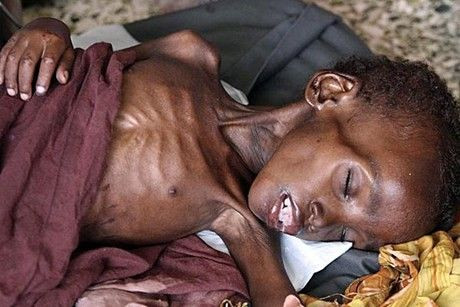Barclays Makes £500M Betting On Food Crisis, While Millions Face Starvation

Barclays PLC, which is still mired in the Libor rate-rigging scandal, has prompted fresh criticism as allegations emerged that the huge British bank has been profiting handsomely from world hunger by betting on food crisis and helping to push prices up.
Barclays Capital, the investment arm of the bank (NYSE:BCS), reportedly made more than £500 million ($795 million) by speculating on food staples such as wheat and soya, while millions around the world face starvation, The Independent in London reported Saturday, citing research from the World Development Movement.
Barclays is the UK bank with the greatest involvement in food commodity trading and is one of the three biggest global players in that market, along with the U.S. banking giants Goldman Sachs Group, Inc. (NYSE: GS) and Morgan Stanley (NYSE: MS), the research points out.
The revenue that Barclays and other banks make from trading in everything from wheat and corn to coffee and cocoa is expected to increase this year, with prices once again on the rise.
Last week, the Swiss trading giant Glencore International Plc (LON: GLEN) was attacked for describing the worst drought to hit the U.S. since the 1930s as "good for Glencore" because it will lead to opportunities to exploit soaring prices.
"They [Glencore] are millionaires making money from other people's misery caused by the drought," Raj Patel, an expert in the global food trade and former U.N. official, told the Guardian. "It's unsurprising that a crisis is a revenue generator."
The extent of Barclays' involvement in food speculation came to light as new figures from the World Bank show that global food prices hit an all-time high in July, with poor harvests in the U.S. and Russia pushing up the average worldwide cost of staples by an unprecedented 10 percent in a month.
Overall, the World Bank's Food Price Index, which tracks the price of internationally traded food commodities, was 6 percent higher than in July of last year, and 1 percent over the previous peak of February 2011.
"Food prices rose again sharply, threatening the health and well-being of millions of people," World Bank Group President Jim Yong Kim said in a statement. "Africa and the Middle East are particularly vulnerable, but so are people in other countries where the prices of grains have gone up abruptly."
Sharp domestic price increases have continued in this quarter, especially in Africa. Sub-Saharan Africa, in particular, experienced the highest price increases in maize, including 113 percent in some markets in Mozambique. Meanwhile, the Sahel and East Africa regions experienced steep price increases of sorghum: 220 percent in South Sudan, and 180 percent in Sudan, for instance.
"No doubt the UK's biggest player in the commodities markets is hoping it will do better this year by cashing in on rising food prices," Christine Haigh, policy and campaigns officer at the WDM and one of the analysts behind the research, told The Independent. "Its [Barclays'] behavior risks fueling a speculative bubble and contributing to hunger and poverty for millions of the world's poorest people."
According to the United Nations Food and Agriculture Organization, an estimated 925 million people in the world are malnourished. In other words, 13 percent of the world's population, or almost 1 in every seven people are facing starvation.
Barclays makes most of its "food speculation" revenues by setting up and managing commodity funds that invest money from pension funds, insurance companies and wealthy individuals in a variety of agricultural products in return for fees and commissions. The bank claims not to invest its own money in such commodities, The Independent said.
The bank defended its actions, pointing out that trading in so-called futures contracts -- an agreement to buy or sell a certain quantity of a product, at a given price on an agreed date -- helps parties such as farmers and bakers to hedge against the risk of rising or falling prices. Barclays declined to comment on the amount of money it makes from trading in agricultural commodities and whether it thought large amounts of speculation pushed up prices and volatility.
© Copyright IBTimes 2024. All rights reserved.




















